|
Hello, I am a 3rd year PhD student of Electrical Engineering at Harvard SEAS and MIT LIDS. I am currently working on Embodied AI with Large Language Models under the guidance of Prof. Chuchu Fan at MIT. I am co-advised by Prof. Na Li at Harvard. I am also working with Prof. Nicholas Roy at MIT and Dr. Yang Zhang at IBM. I am broadly interested in the research of AI for Science, particularly autonomous robots for scientific experiments and inverse problems. I received my bachelor' degree at University of Science and Technology of China (USTC) with the major in Theoretical and Applied Mechanics and minor in Applied Mathematics in 2021. Before coming to the Robotics domain, I did researches on Applied Physics, Solid Mechanics, and AI for Science under the guidance of Prof. Ju Li at MIT, Prof. Joost Vlassak at Harvard, Prof. Ting Zhu at Georgia Tech, and Prof. Hailong Wang at USTC. I received the 40th Guo Moruo Award (highest undergraduate honor in USTC) in 2021 and Harvard SEAS PHD Fellowship in 2022. I will intern at Microsoft Research AI Frontiers in 2024 summer in Redmond, WA. Email / CV / Google Scholar / LinkedIn / Github |
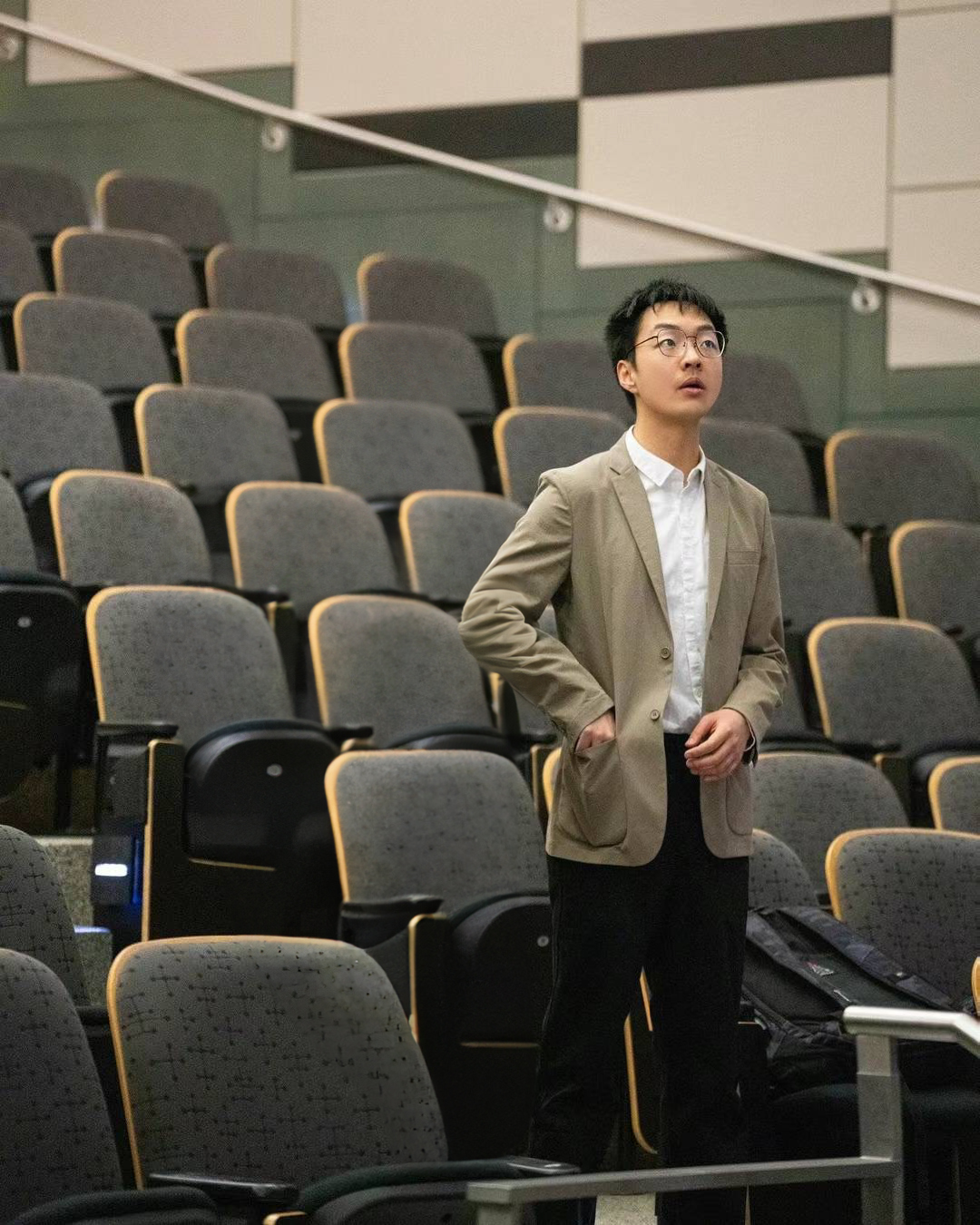
|
|
2024/03/14 - I will present at Harvard AM+ Graduate Student Seminar on April 18 and MIT LIDS Autonomy Tea Talk on April 30. 2024/03/07 - I was invited to present AutoTAMP in AGI Leap Summit 2024, and won the best paper award. 2024/01/29 - Two first-authored papers got accepted to ICRA 2024: Check out the AutoTAMP and Scalable Multi-robot Collaboration! AutoTAMP has been invited to give seminar talk in ICRA VLMNM workshop. 2024/01/25 - One collaborated paper got accepted to JMPS: We explored the application of AI into Physics and Material Discovery. Check out the Paper! 2023/11/01 - I gave a seminar talk at Science In the News (SITN): Is ChatGPT the Brain Robots Have Been Waiting For? [Poster] [Slides] 2023/10/27 - My only-authored paper got accepted to NeurIPS 2023 Workshop on Adaptive Experimental Design and Active Learning in the Real World: Physics-Enhanced Multi-fidelity Learning for Optical Surface Imprint. Check out the paper! 2023/10/06 - One first-authored paper got accepted to EMNLP 2023: NL2TL: Transforming Natural Languages to Temporal Logics using Large Language Models. Check out the paper! 2023/08/21 - One co-first-authored paper got accepted to Nature Communications: Nanoscale ductile fracture and associated atomistic mechanisms in a body-centered cubic refractory metal. Check out the paper! |
|
Robotics Learning infuses robots with AI-derived intelligence; conversely, AI for Science exploits AI to generate new scientific intelligence. Robotics and Foundation ModelsI'm currently interested in LLM-based robot planning. Utilizing natural language commands is crucial for mainstream applications of robotics. The recent arising of LLMs makes embodied AI more promising. |
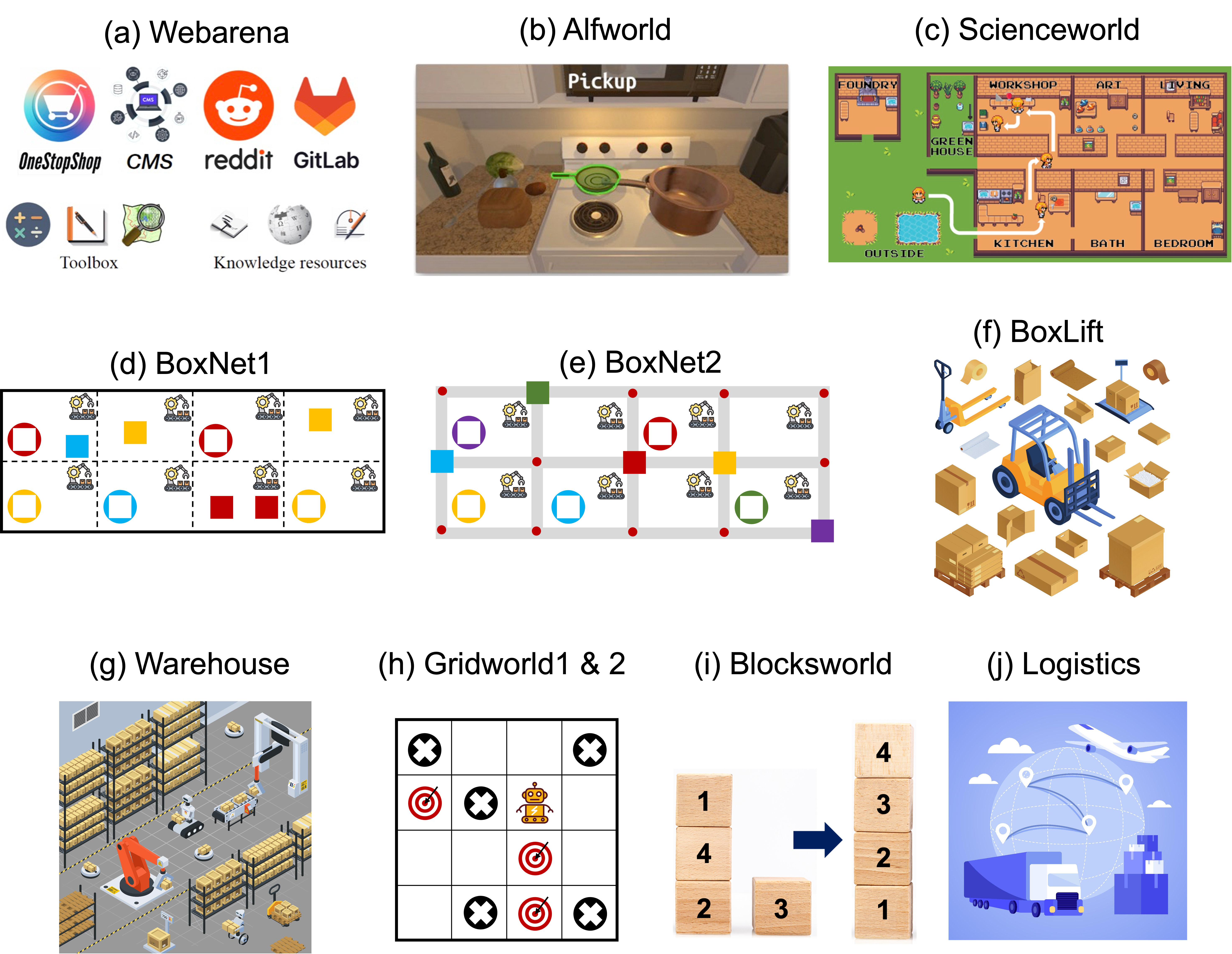
|
Yongchao Chen, Jacob Arkin, Yilun Hao, Yang Zhang, Nicholas Roy, Chuchu Fan arXiv Project Page / Code / Paper / Initial and Optimized Prompts We introduce an automatic prompt optimization framework for complex, multi-step agent tasks: PROMST. To handle the issues of task complexity, judging long-horizon correctness of individual actions, high prompt exploration cost, and human preference alignment, we propose the integration of human feedback, a learned score prediction model, and the modification of task score functions. |
|
|
Yongchao Chen, Jacob Arkin, Yang Zhang, Nicholas Roy, Chuchu Fan The 2024 International Conference on Robotics and Automation (ICRA'2024) Project Page / Code / Paper / Video We compare the task success rate and token efficiency of four multi-agent communication frameworks (centralized, decentralized, and two hybrid) and three step history methods (with all history, without history, and with state-action pairs) as applied to four coordination-dependent multi-agent 2D task scenarios for increasing numbers of agents. |
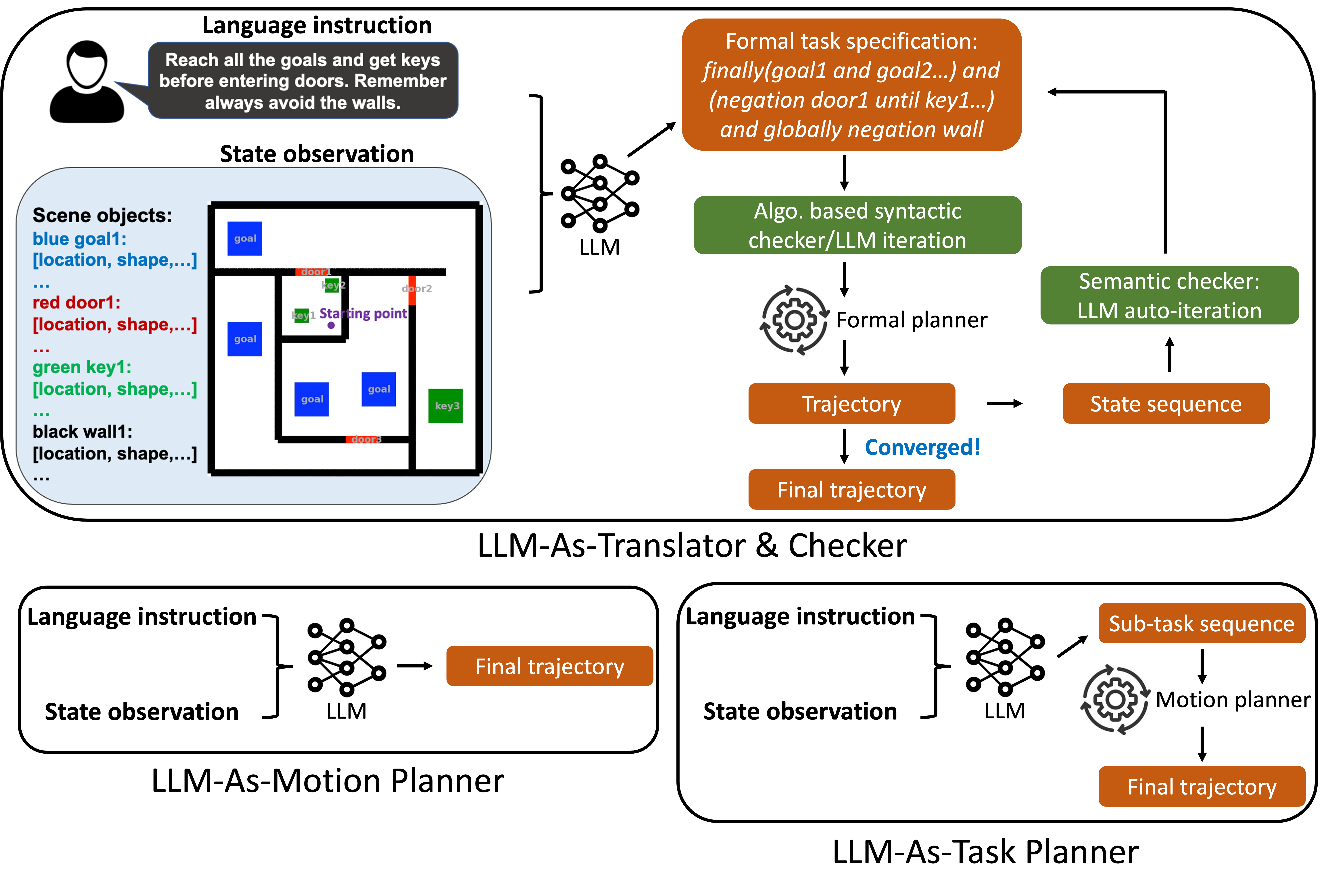
|
Yongchao Chen, Jacob Arkin, Charles Dawson, Yang Zhang, Nicholas Roy, Chuchu Fan The 2024 International Conference on Robotics and Automation (ICRA'2024), best paper award in AGI Leap Summit 2024 Project Page / Code / Paper / Video This paper uses LLMs to translate language instructions to formal task specifications that can be solved via a TAMP planner. |
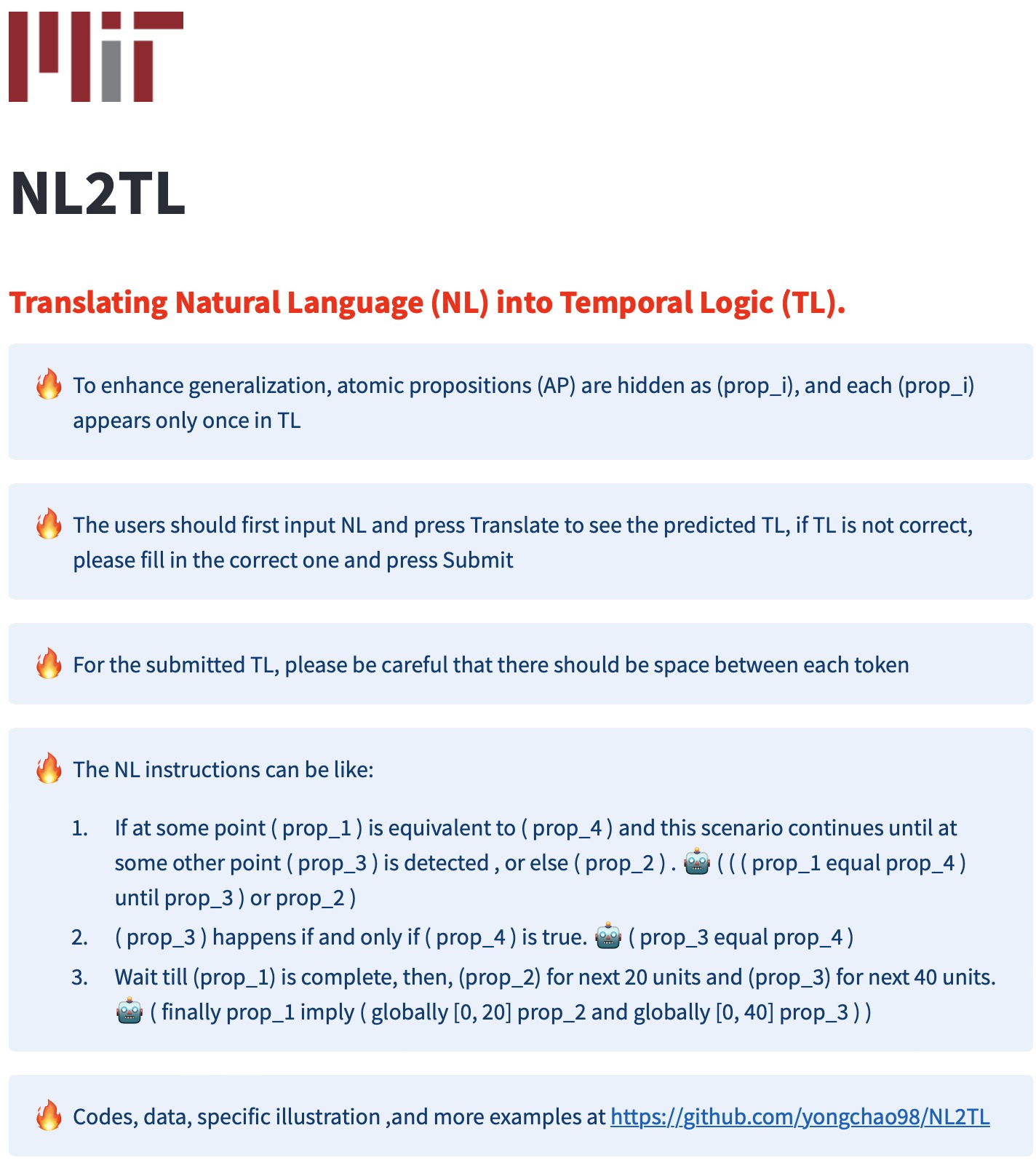
|
Yongchao Chen, Rujul Gandhi, Yang Zhang, Chuchu Fan The 2023 Conference on Empirical Methods on Natural Language Processing (EMNLP'2023) Project Page / Demo Website / Code / Paper We propose a framework to achieve accurate and generalizable NL-to-TL transformation with the assistance of LLM, from aspects of both data generation and model training. |
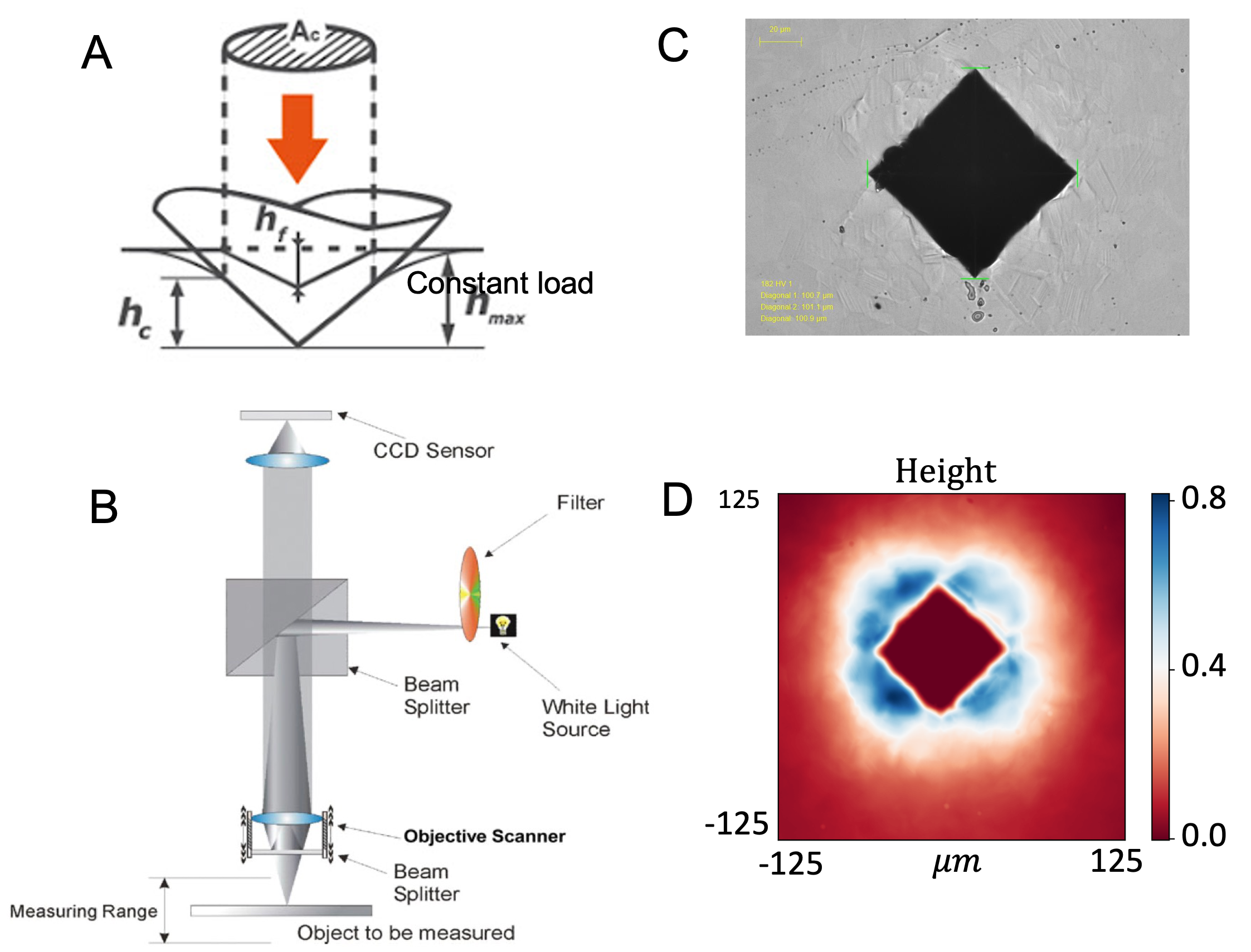
|
Yongchao Chen* NeurIPS 2023 Workshop on Adaptive Experimental Design and Active Learning in the Real World Paper We apply active learning and multi-fidelity neural networks to explore the inverse problems, mitigate the sim-to-real gap, and automate the material discovery process. |
Fundamental Science and AI for ScienceI also did much work on fundamental physical sciences and AI for science in my undergraduate study and first year of PhD study. Integrating AI to help explore new science should be the general trend. I hope to apply robotics and AI into scientific reseach in the future! |
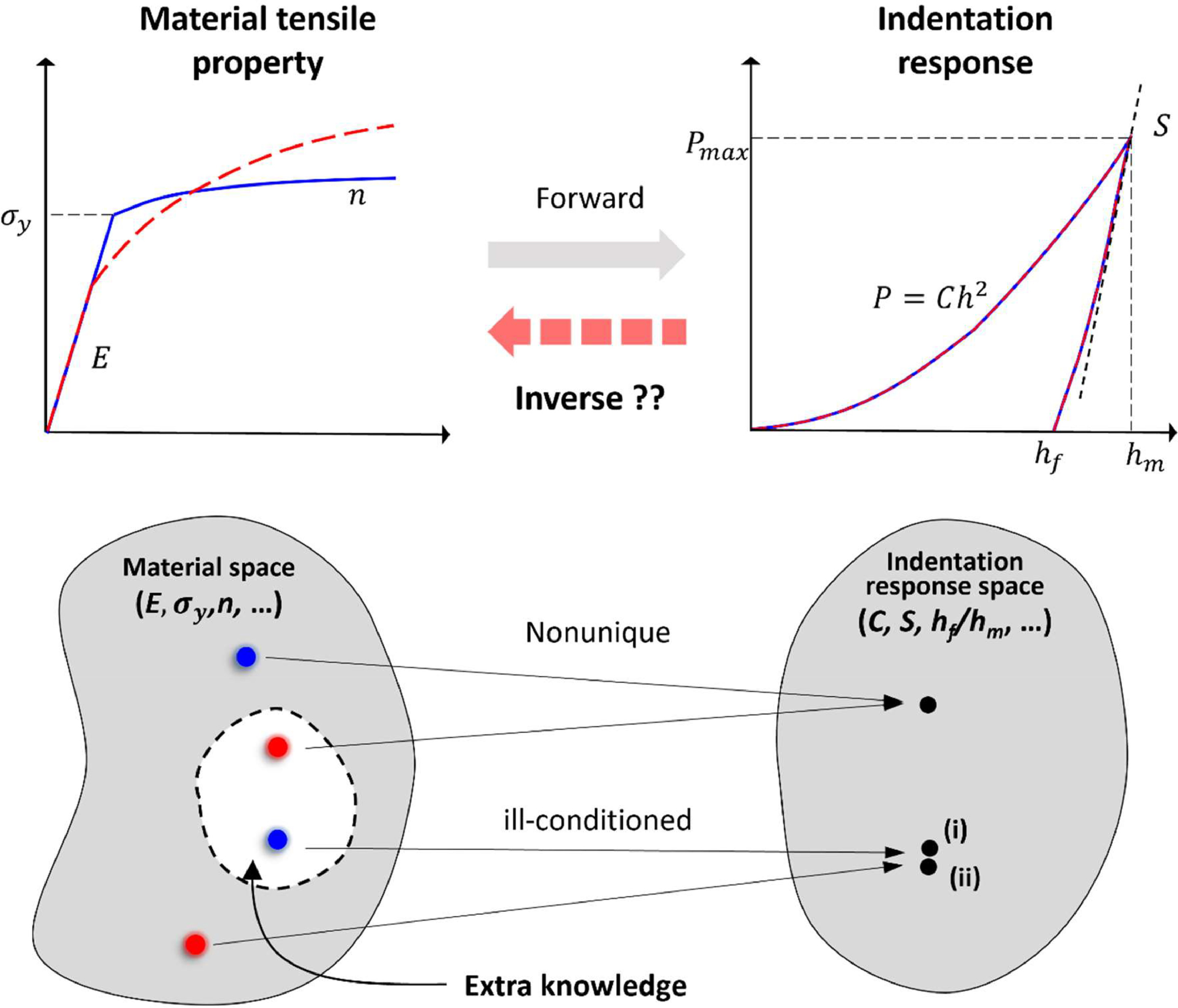
|
Quan Jiao, Yongchao Chen, Jong-hyoung Kim, Chang-Fu Han, Chia-Hua Chang, Joost J Vlassak* Journal of the Mechanics and Physics of Solids (Acceptance Rate = 24%, Impact Factor = 5.58), 2024 Paper We applied machine learning and optimization methods to explore the forward and inverse problems of indentation. |
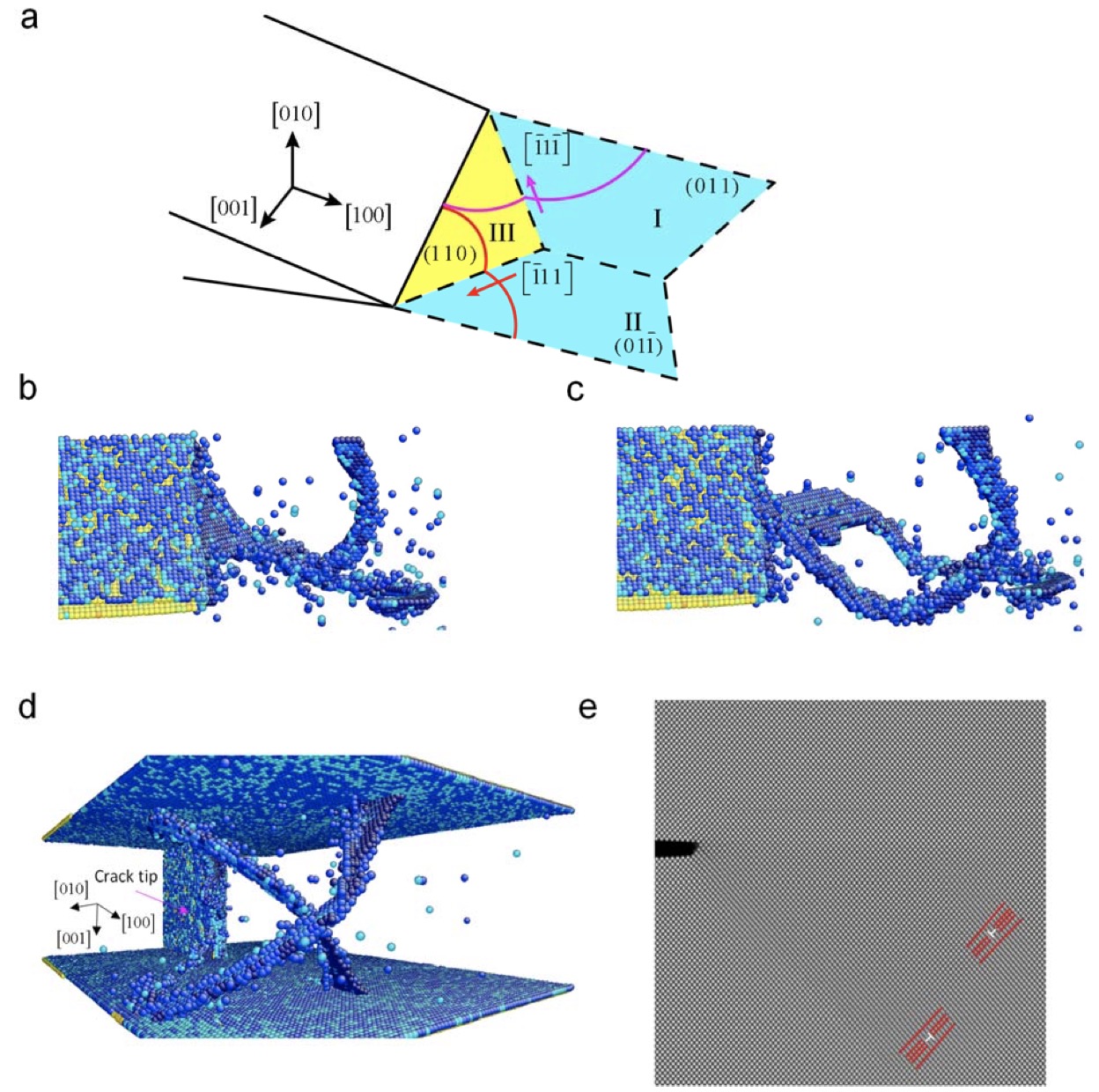
|
Yan Lu1, Yongchao Chen1, Yongpan Zeng, Yin Zhang, Deli Kong, Xueqiao Li, Ting Zhu*, Xiaoyan Li*, Shengcheng Mao, Ze Zhang, Lihua Wang*, Xiaodong Han* Nature Communications (Acceptance Rate = 7.7%, Impact Factor = 17.69), 2023 Paper We revealed nanoscale ductile fracture and associated atomistic mechanisms in a body-centered cubic refractory metal. |
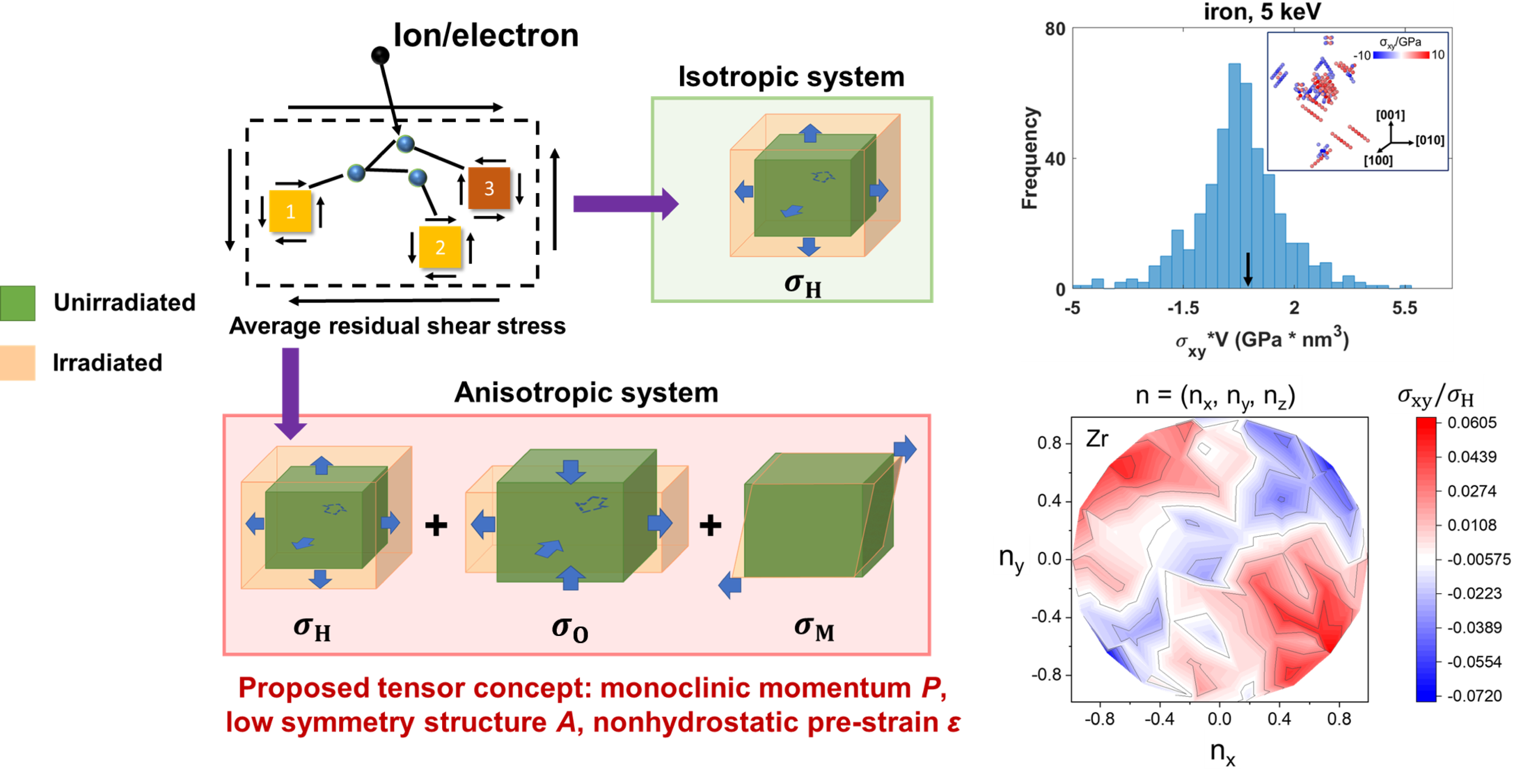
|
Yongchao Chen, Qingjie Li, Alexander D. O'Brien, Yang Yang, Qi He, David A. Bloore, Joost J. Vlassak*, Ju Li* Extreme Mechanics Letters (Acceptance Rate = 30%, Impact Factor = 4.728), 2023 Paper We revealed the coupling effects of incident direction of PKA and structures of materials on average residual shear stress. |
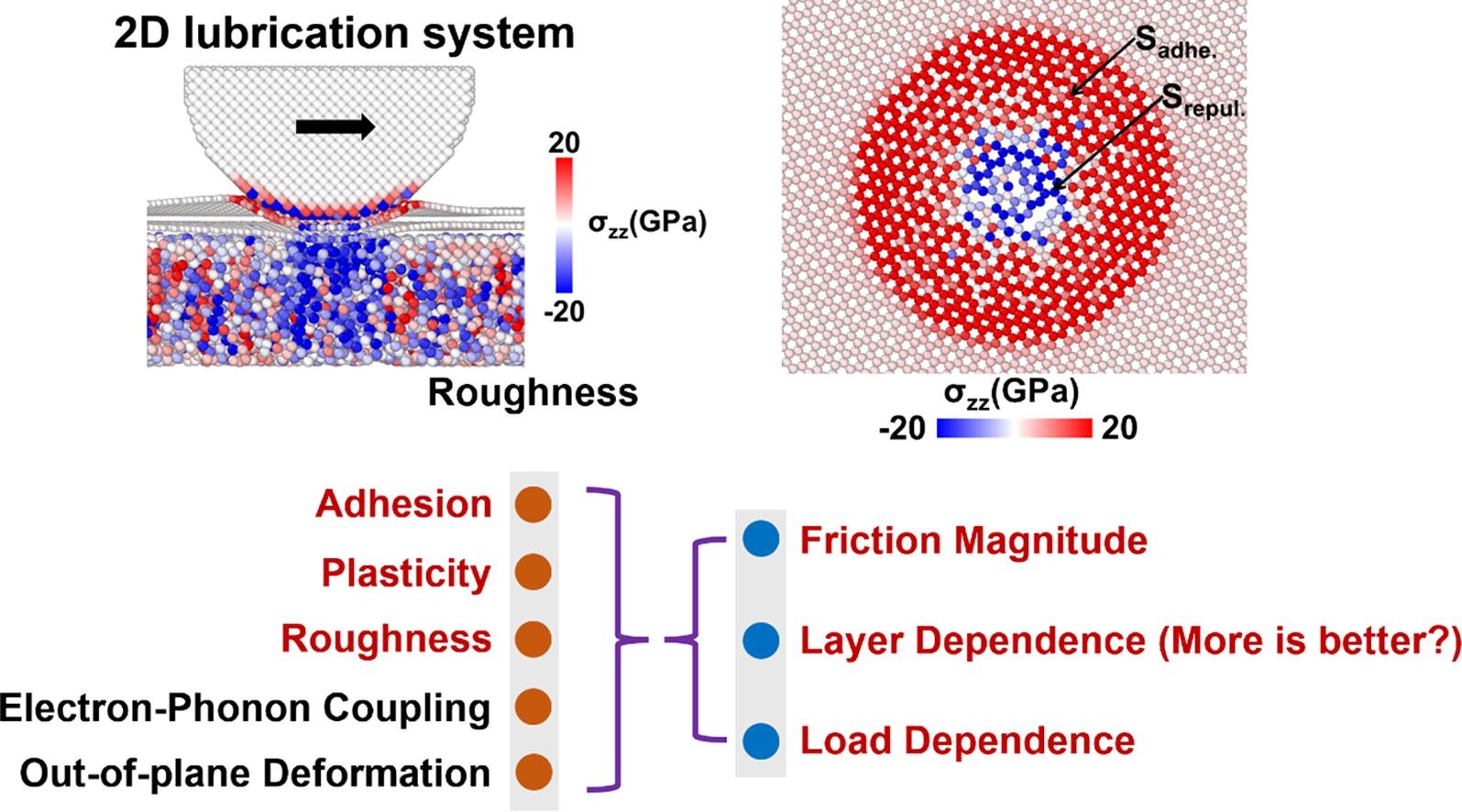
|
Yongchao Chen, Zhizi Guan, Jingnan Liu, Wei Yang, Hailong Wang* Applied Surface Science (Acceptance Rate = 18%, Impact Factor = 7.392), 2022 Paper We revealed the anomalous layer-dependent frictional behavior, which originates from the interplay among interfacial adhesion, wrinkle of topmost graphene, contact roughness, and plastic deformation of substrates. |
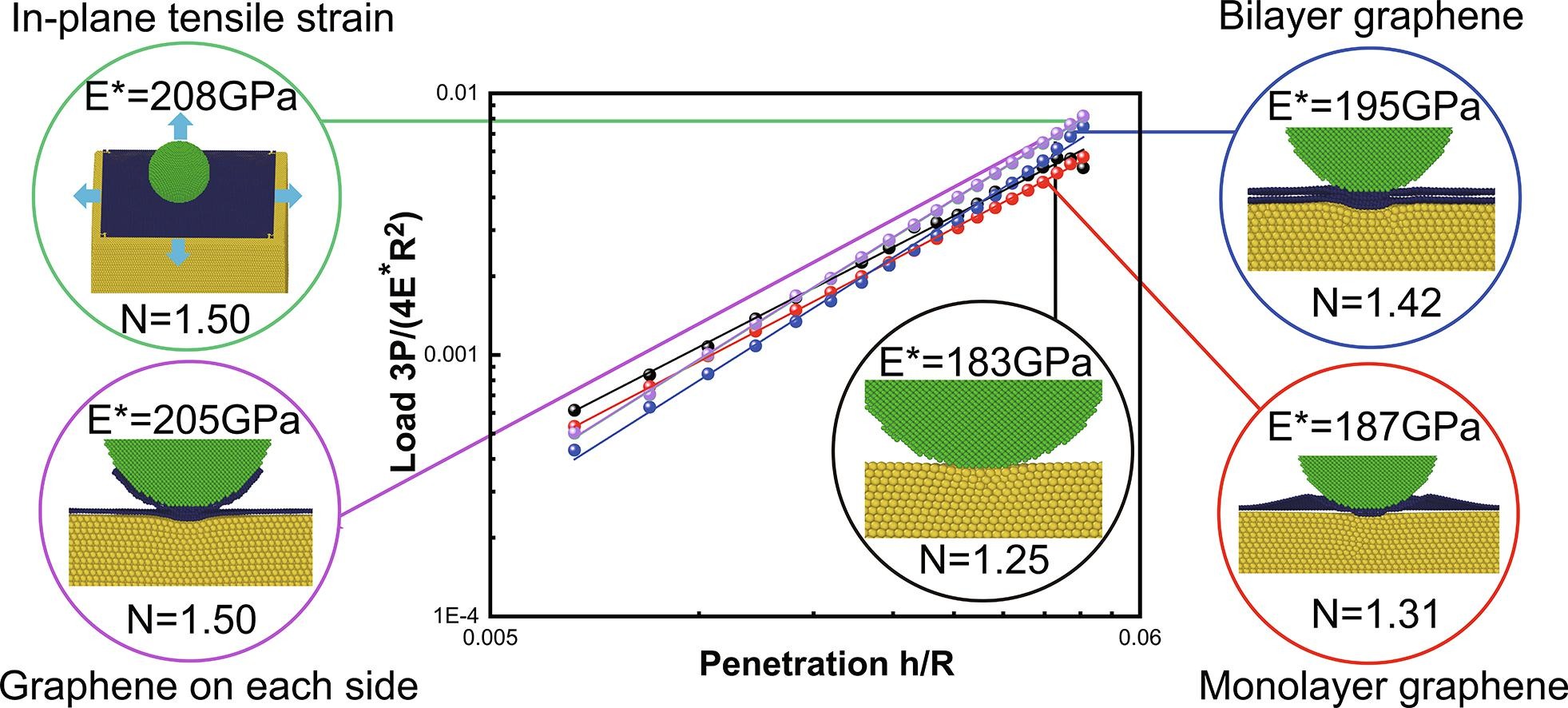
|
Yongchao Chen, Zhizi Guan, Wei Yang, Yongtao Yao, Hailong Wang* Computational Materials Science (Acceptance Rate = 19%, Impact Factor = 3.572), 2021 Paper The influence of the adhesion between the bare substrate and indenter tip can be significantly reduced by decreasing the adhesion strength and adhesion range between the atoms on the substrate and indenter, or by enhancing the substrate stiffness. |